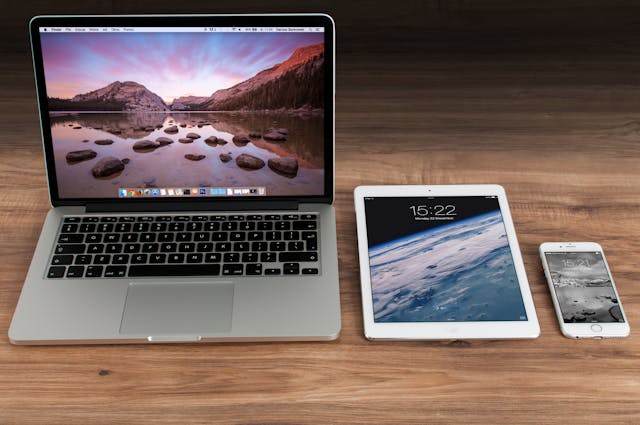In an era where speed and efficiency are paramount, ensuring your device runs at its best can make a difference in productivity and enjoyment. According to the nature of your computer use—work, gaming, or browsing—slow speeds and inefficiencies can significantly decrease your experience. The good news is that several tools, including a computer cleaner, can declutter your device and help it run smoothly. In this article, we will delve into some of the fundamental tools and methods used to improve or enrich your device performance on a technical basis and discover how successful tools and methods can lead to a new beginning in your digital life.
Understanding Device Performance
To properly optimise your device, you must first understand performance. Device performance indicates how effectively your computer performs tasks and processes data. Numerous factors affect performance, from hardware specs to software applications and how you maintain the system. Detailing these aspects will enable considerable improvement in performance and responsiveness.
The Role of Hardware
The performance of your computer is primarily dependent on its hardware. The processing unit (CPU), random access (RAM) memory, and storage drive are the most critical components determining how fast your device runs. The performance per dollar of these upgrades is often substantial. Upgrading certain parts of your computer can give it a new lease of life; for example, adding more RAM can allow your computer to handle many tasks simultaneously; switching to a solid-state drive (SSD) can change how long it takes to load a program.
Software Impact
The software runs your computer and affects its performance. Unwanted or outdated applications can also run in the background, consuming resources and slowing your device. Regularly reviewing your installed software will enable you to delete programs you no longer find useful, giving your system valuable resources to run more smoothly.
Essential Tools for Optimization
There are limitations to how much speed and performance you get from such hardware upgrades. Software tweaks can also help you speed things up without making any changes. A computer cleaner is one of the best tools on the computer.
Using a Computer Cleaner
A computer cleaner is a program that can scan and remove junk files and apps from your computer. As time passes, your computer collects various files that can take up space and slow down performance. A computer cleaner goes through your system and finds temporary files, cache, and other junk data to free up space and speed up your computer.
Choose a computer cleaner that is simple to use and well-reviewed. Many cleaners also come with features such as scheduled scans and real-time monitoring that can maintain your device’s performance in the long run. A computer cleaner is one of the most essential utilities you will ever use on your system. By using it regularly, your system will always remain clean and responsive.
Disk Cleanup Utilities
Most operating systems have integrated disk cleanup tools that can help clear temporary files and system caches. Windows, for example, has a disk cleanup tool that scans your hard drive for files that can safely be deleted. These built-in tools can supplement your computer cleaner and boost your device.
System Optimization Software
Disk cleaning is also included in various system optimisation software programs. These programs are designed to improve device performance by modifying system parameters, optimizing startup processes, and managing background applications. Most of these programs provide different kinds of one-click optimization options, allowing even the most novice user to boost their device’s performance.
Defragmentation Tools
Fragmentation refers to filing cabinets with little torn-apart pieces of paper crammed together. These little pieces of paper tend to get scattered around your drive, slowing access time down to a crawl. Defragmentation utilities will reorder these fragmented files, making them quicker to access and with better performance. Most modern operating systems handle defragmenting hard drives automatically, but a dedicated defragmentation tool offers more comprehensive optimisation.
Importance of Regular Maintenance
Regular computer maintenance is the key to optimising its performance. Using computer cleaners and optimisers regularly can improve your system’s performance and speed. Set aside a few monthly hours for routine maintenance, such as cleaning, updating software, and checking for hardware issues.
Keeping Software Updated
Keeping your software up-to-date is also essential for running your device smoothly. Developers often release updates to enhance functionality, resolve bugs, and patch security vulnerabilities. Automatic updates for your operating system and applications keep you abreast of these changes, ensuring your device functions optimally.
Monitoring Resource Usage
Keeping an eye on your device’s resource usage can help troubleshoot performance problems. Most operating systems have resource monitors that assist in monitoring CPU and memory usage. Once you know which applications are the biggest culprits, you can take action and decide which to keep, remove, or limit usage.
Conclusion
To enhance your digital experience optimally, you need to optimize your device performance. Knowing the determining factors that contribute to better performance and aided with the appropriate software, such as a computer cleaner or system optimization tool, you can start from scratch in enhancing the efficiency of your device. Keeping the system maintained and updated will ensure that it runs smoothly for as long as possible and help you get a faster computing experience. These strategies will prepare you to tackle any work, study, or leisure task.











